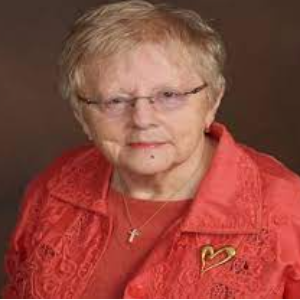Title : North American nurses’ impact on the Haiti national school of nursing
Abstract:
The purpose of this presentation will be to examine the impact of North American nurses on the Haiti National School of Nursing (HNSON) in Port-au-Prince, Haiti. The school has a history closely related to the City General Hospital in Port-au-Prince and the United States occupation of Haiti from 1915 to 1934.
As requested by the director of the school, the authors became involved in the preparations for the school’s 100-year anniversary celebration that took place on October 14, 2018 in Port-au-Prince. Two of the authors have a relationship with the school that began before the earthquake in 2010 and continue to the present day. The school’s director needed more information regarding the early history of the school. Very little information existed in the records held at the school, but the director had the name of Vashti Bartlett. Using Bartlett’s name as a key word for an internet search, U. S. Naval and American Red Cross reports from 1918 to 1922 revealed North American nurses were directly involved with the establishment of the school.
Influential Navy nurses Lucia D. Jordan and Josephine Y. Raymond received orders in July 1918 to establish a training school in Port-au-Prince for native Haitian women. It was to be located in the cleansed and scrubbed City General Hospital. The American presence of naval sanitation engineers and medical officers during the early occupation of Haiti made significant improvements to the hospital and day-to-day control passed to the Haitian Public Health Service. In 1920, the naval nurses were withdrawn from Haiti to other assignments
Vashti Bartlett and two other influential Red Cross nurses accepted the request of the Haitian government to take over the leadership of the school. Bartlett had training school experience and spoke fluent French. She advocated for the early graduates of the school to secure employment in the hospital, which was difficult due to the poverty of the people and the emergence of a devastating smallpox epidemic in 1921.
Modern day nurse influencers have assisted the school in numerous ways, particularly in the aftermath of the 2010 earthquake. The school saw a devastating loss of 90 student nurses, 81 of those from the second-year class, and three faculty members. North American nurse leaders extended their presence, compassion and altruism as psycho-social gifts and fostered the mobilization of monetary gifts to replace resources, develop nursing student scholarship funds, faculty development activities, and provide graduate training for the faculty in nursing education and leadership.
Haiti is the poorest country in the Western hemisphere and its population suffers from severe health hardships. Multiple reasons contribute to this – natural disasters, unstable political conditions, lack of a middle class, limited access to western medicine, ineffective infrastructure, high maternal-child mortality rates and an under-funded healthcare system.
No matter how poor a country is, there is still an active school of nursing. Thanks to the input of nurses in a first world country, a third world country has been able to continue educating their own. Nurses, and nursing schools, are survivors.



